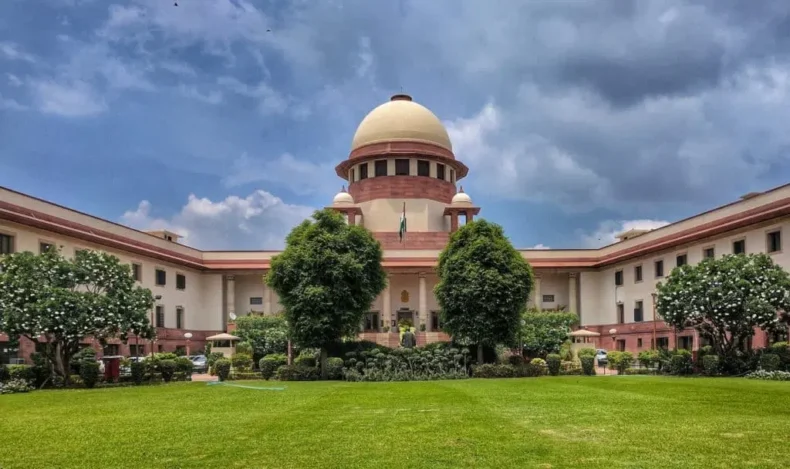
The Supreme Court observed on Thursday during hearings on a number of petitions contesting the 103rd Constitution Amendment, which mandates a 10% quota for economically weaker sections, that “we are still living in a culture that classifies persons and groups as caste” (EWS).
In response to arguments put up on behalf of the state of Andhra Pradesh, the Constitution bench headed by Chief Justice of India UU Lalit made the comment.
In support of the modification, senior advocate Niranjan Reddy, speaking on behalf of the state, argued that it is not unlawful to exclude socially and educationally disadvantaged sections from the EWS quota even though they already receive accommodations.
Reddy was replying to the petitioner’s claims that it was unfair for backward classes not to receive reservations under the EWS category.
Reddy stated that reserves are by definition exclusive. The Constitution has been designed to prevent one given category from being subject to further vertical reservations once there is a vertical reserve.
Since a vertical EWS is currently being developed, whomever is furnished first would be excluded from the reservation, Reddy added.
According to him, people who have previously received quotas under provisions will not be eligible for double reservations, and excluding them would not be against the legislation on equality.
The bench, however, stated that using this reasoning, it may be argued that the open category is likewise exclusively available to individuals who are not reserved and do not fall under any specific group.
The bench also stated that the SC’s ruling in the Champakam Dorairajan case rejected the notion that there might be a compartment that is completely impenetrable for groups, regions, and divisions for which there is no reservation at all. However, it was widely believed that anybody and everyone may compete everywhere there isn’t a reservation.
Justice Ravindra Bhat said, “We are still living in a culture that categorises individuals and social groups as belonging to a caste.
During the hearing, Reddy further argued that each member of the backward class who had previously been granted provisions under Articles 15(4) and 16(4) had an opportunity quotient that was greater than theirs due to the individual-centric opportunity of both open seats and backward class seats.
In contrast to a general category candidate who is now compelled to give 60% to the reserved category, he contended that a member of the backward class only has to cede 10% after EWS reservations.
He contended that the state’s 50% restriction on reservations for underprivileged groups, which leaves 50% open for the general category, cannot be rigidly applied.
“With so many moving pieces, this equilibrium cannot be static. In a country like India, society is so turbulent and dynamic that everything is always changing. The equilibrium must therefore be moving as well. It cannot always be a fixed, inflexible 50%, claimed Reddy.
The senior attorney further emphasised how these EWS reservations are being done separately and are the sole action being taken for the general category’s depressed portions.
“Is it so immoral, is it so twisted that it will go to the root of Constitution modification if the Parliament considers that it aims to balance sets of opposing values and interests in this manner?’ Reddy concluded by saying.













